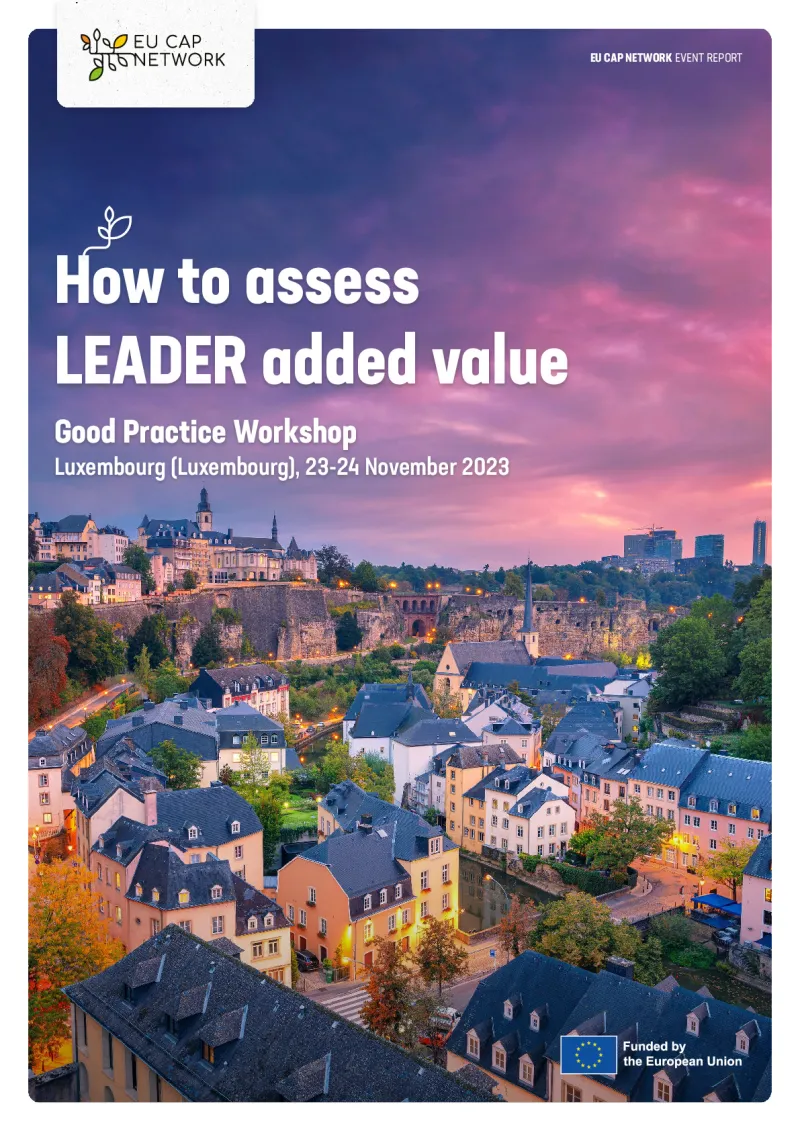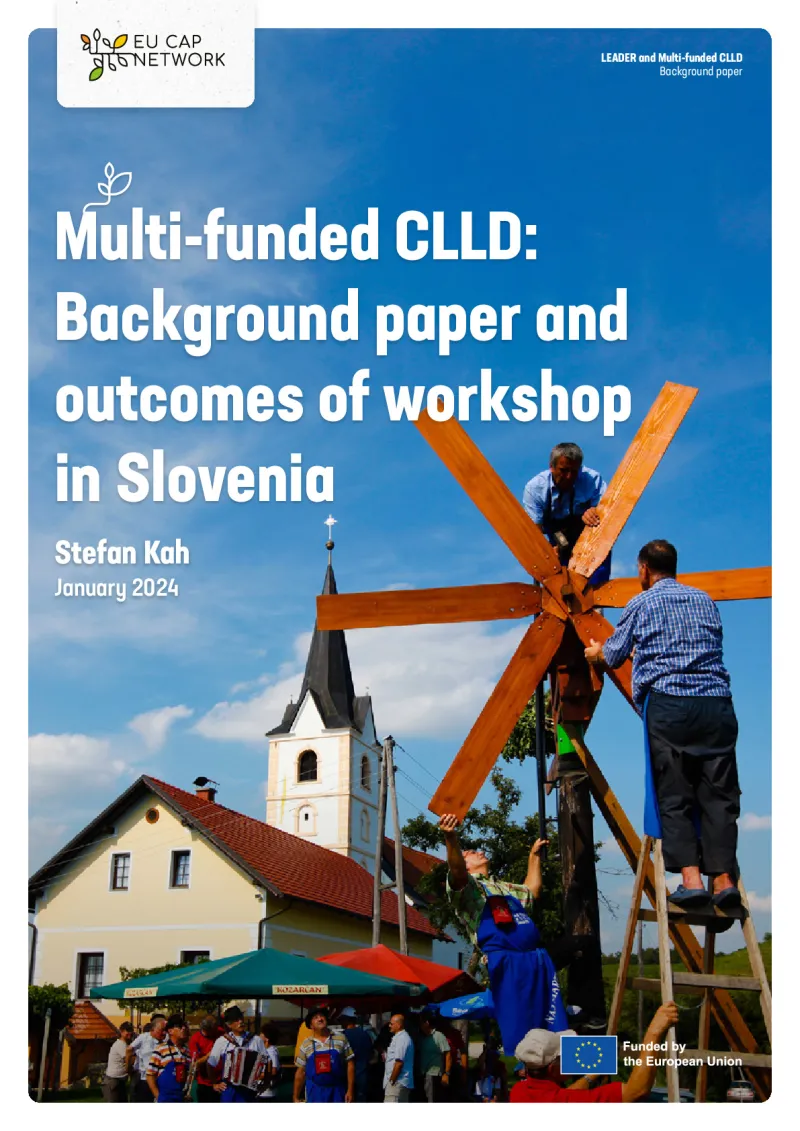Rural mental health matters: Lessons from LEADER in Belgium
- CAP Implementation
- CAP Strategic Plans
- LEADER
- Long-term Vision for Rural Areas
- Rural Development
- Social Inclusion
- Socio-economic Impacts
This LEADER case study from Belgium shows the importance of improving mental health support services for farmers and farming communities.

The mental health of farmers and farming communities is a Thematic topic for the EU CAP Network, and there is no doubt that LEADER has pioneered various actions aimed at increasing attention about mental health in the agricultural sector. A good example of this was piloted during the previous programming period (2014-2020) by Westhoek Local Action Group from the Flanders region of Belgium.
Belgium’s current Presidency of the EU promotes mental health at work as well as access to sustainable social protection. The Flanders National Network has also been active in promoting the well-being of farmers. Rural mental health issues in the Westhoek LAG area were recognised as a challenge for agricultural workers. This rationale led to LEADER funds being provided for the 'Zot van 't Boeren' (Crazy about farming) project, which was designed to help bring the welfare and agricultural sectors closer together.
Wouter Bertier, the Westhoek LAG coordinator, provides more insight into the background to this locally innovative use of LEADER funds to support farmers' well-being: “The Westhoek area has had many suicides in the agricultural sector. Farmer workloads continue to be increasingly complex and in addition to the physical labour, you also have to be a manager, keep your administration in order and ensure that everything is paid. You still have to do a lot of thinking in the evening. That is at least as stressful as physical work. You also have a lot on your mind, a lot of things that you can worry about and that keep you awake at night. Farmers work almost twice as many hours as employees. Because they usually work where they live, the separation between private and work becomes difficult. There is always work and farmers may feel that ‘I don't have time to rest’," he emphasises.
“Also, the financial pressure is high because our farmers here have an average supplier debt of €145 238, an average cash credit of €45 585 and an average investment credit of €261 691. We also see that farmers are increasingly less likely to join rural clubs or associations, and this loss of social contact can have a negative impact if it reduces a person’s happiness. As a result, farmers’ problems in various areas (financial, succession, psychological, etc.) were often noticed late, and this was partly because the welfare sector and the agricultural sector did not know each other well.”
Building benevolent bridges
LEADER’s support was used to tackle this gap by improving the health services' understanding of farmers’ particular support needs, while also raising farmers' awareness of where the closest mental healthcare services were.
Wouter points out a key outcome from this bridge-building work, highlighting how, “the project ensured that farmers dared to discuss their problems. LEADER helped to explore the best ways to reach farmers and a novel methodology was tested using existing farm visitors, like veterinarians, postal workers, suppliers, etc., to act as voluntary relief workers. They were trained in how to detect and watch for signs of mental health risks among the farming communities that they served.”
LAG support led to 75 capacity building sessions between the agricultural and welfare sectors, such as training events. Nearly all the local municipalities in the LAG territory also established specialised help services for farmers and a range of information was published in agricultural magazines. Priority groups, including female farm workers, were supported with a tailored approach. The project also produced an ‘Inspiration Guide – working on mental health among farmers and horticulturists’. This helped inspire ongoing work in this field.
The Flanders Institute for Agriculture and Fisheries Research conducted further research on the theme after the LEADER project. Their action plan findings about stress and well-being among farmers provide an additional valuable project legacy for the LAG territory.
Reflecting on the project’s overall success, Wouter advises other LAGs interested in this topic that, “It is not just about the numbers of farmers who contact assistance. It is equally important to hear from people who work in the agricultural and welfare sectors. They can say whether or not they experience that the boundaries between the sectors have disappeared.”
“For instance, the Farmers at a Crossroads organisation had experienced problems in raising the public profile of mental health issues, but, thanks to this project, it suddenly became possible to have articles published about farmer welfare and to receive media attention. We also found that when staff in municipalities change jobs, it can affect the municipality support. This can indicate that it is better for the municipality to have a formal interest in farmers' mental health rather than to rely on this being a specific interest of individual staff.”
LEADER's involvement in the project also showed how useful LAGs can be as local development channels for implementing EU mental health policies and plans locally on the ground in rural areas. Bottom-up approaches that are rooted in LEADER allow the thousands of EU LAGs to be effective outreach multipliers for EU strategies. This represents both a real advantage and a useful opportunity for LEADER’s willingness to become involved with identifying and addressing rural mental health matters.
Follow the EU CAP Network’s Thematic Group meetings for more inspiration about the possibilities of LEADER (and other aspects of the CAP Strategic Plans) to promote projects that deal with reducing the risks of the trauma associated with mental health problems for EU farmers and farming communities.


